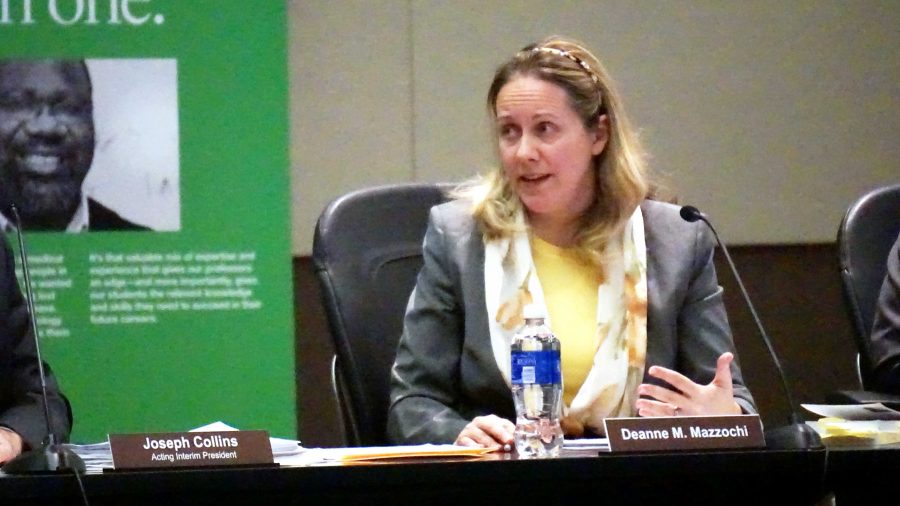COD tuition freeze leaves room for anxiety
March 22, 2017
The most important factor when any student selects the College of DuPage as their school of choice is the cost of tuition. With tuition prices across the nation skyrocketing, students are stuck paying for their education at an aggressive price point. COD provides a backdoor to education by providing the highest quality instruction with the lowest possible cost.
At $135 per credit hour for in-district students, there’s truly no other school that can compete. A full-time, in-district COD student pays anywhere from $3,240 to $4,050 for both Fall and Spring semesters. Compare COD to the $25,000 cost of attendance at Northern Illinois University, the almost $30,000 cost of University of Illinois at Chicago and the $31,000 cost at University of Illinois Urbana-Champaign, it becomes blaringly clear why students choose our institution.
Cost isn’t the only factor students consider. If that were the case, we would all be looking to Joliet Junior College (JJC) for its in-district tuition of $125 per credit hour or any other community college in our area with a lower price tag. COD provides university level amenities, which other community colleges like JJC don’t have the ability to offer, such as an 18-acre natural prairie for STEM students and top-notch facilities for specific career paths like the Culinary and Hospitality Center and the Homeland Security Education Center.
Through providing these programs, COD has become a beacon of light for students’ wallets, not only in DuPage county, but across the globe as a pathway to their education. Even the $322 per-credit-hour price for out-of-district students is much better than any other public institution competing in the global market to provide an American education.
Over the past two years, the COD Board of Trustees, led by Chairwoman Deanne Mazzochi, has progressively lowered tuition from $144 in-district and $331 out-of-district to $135 and $322 respectively. This drop in price has been seen by the community-at-large as a major success in cutting back costs and lowering the financial burden on both students and community members.
Last week, the board decided to freeze tuition costs and property taxes on District 502 for this upcoming fiscal year. That sounds wonderful no matter what way anyone tries to spin the story. There will be no layoffs. Students will still have access to core programs, and the school will have an operating budget $8.5 million less than last year.
The only worrisome part of this ordeal is that this budget has the expectation of the state providing no funds throughout the 2017 fiscal year. Although COD can currently handle that sort of load on their finances, schools across the state have been facing cutbacks on their programs and large layoffs at schools like Chicago State University.
COD’s operating budget usually includes about $12 million in state funding. The school only received $3.5 million for the 2016 fiscal year. With cutbacks coming from the state, schools are expected to take large funding hits as the turmoil in Springfield politics becomes more poisonous to the entire Illinois population.
Illinois’ budgetary issues have trickled down into everyone’s lives at COD. We must realize our school isn’t as invulnerable as our surplus may make us out to look. We can take a hit, but if this continues for too much longer then every public institution across this state will be in trouble.
If administrators ever need to increase tuition again, do not hesitate. This school is more than just a second chance for people who failed out of a four-year institution. This is a school where ideas are met with contradiction, people are met with uncomfortable situations, and teachers are challenged to exceed expectations. This is not a home for the faint of heart. This is a school that truly challenges a person to grow and prosper.
COD is an institution that provides an education for everyone across a spectrum of different backgrounds, faiths and ideologies. It’s the definition of not only educational diversity but the American dream. We are willing to pay our fair share of the price to realize that dream. When will our state lawmakers stand with us and do the same?




















